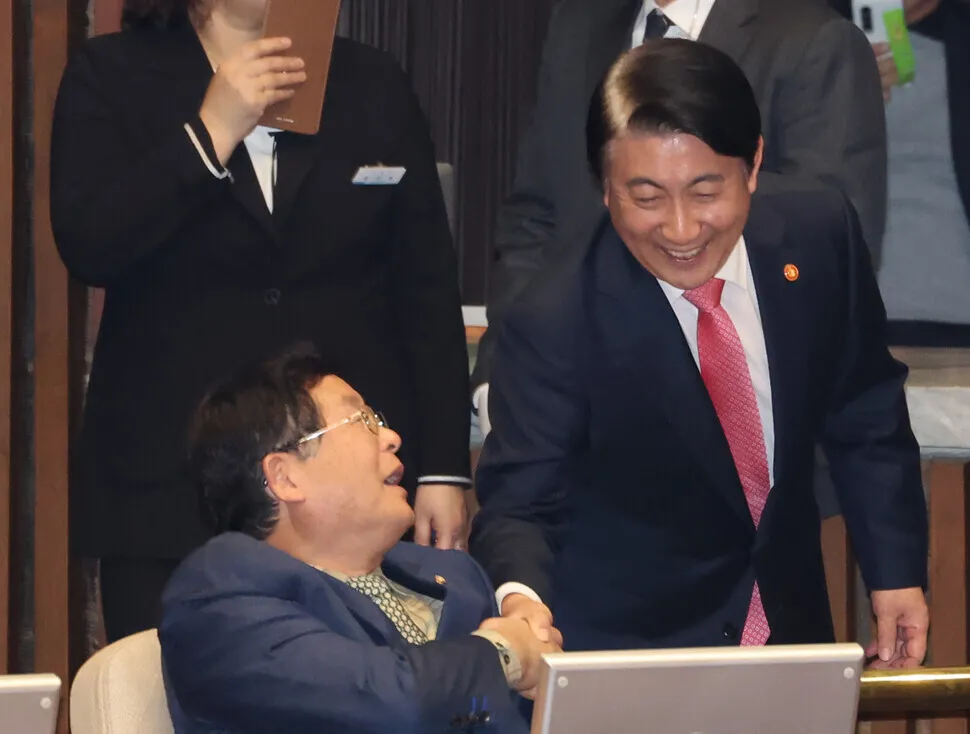South Korea's Democratic Party Plans to Pass Broadcasting Reform Laws

The Democratic Party of Korea has announced plans to process the 'Broadcasting Reform Laws' during the National Assembly's plenary session on August 4. They stated that these laws aim to ensure that public broadcasting does not sway with changes in government and to return networks like KBS (Korean Broadcasting System), MBC (Munhwa Broadcasting Corporation), and EBS (Educational Broadcasting System) to the public. However, opposition parties argue that the laws effectively undermine the president's appointment powers and increase the influence of pro-government figures, particularly from labor unions affiliated with the Korean Confederation of Trade Unions.
The Broadcasting Reform Laws include regulations on the appointment of board members and the selection of presidents for KBS, MBC, and EBS. The proposed changes would divide the authority to recommend board members among political parties, a majority of employees (including journalists, producers, and technical staff), media academic associations, and legal organizations. For KBS, the number of board members would increase from 11 to 15, with six appointed by the National Assembly. The remaining nine would be selected from a viewers' committee, employee recommendations, media-related academic associations, and legal organizations.
Critics point out that the involvement of employee representatives and academic associations could allow labor unions to exert significant control over the board. The distribution of recommendations among negotiating parties would also favor the Democratic Party, allowing them to recommend four members while the People Power Party would recommend two.
The opposition interprets a provision stating that the president must appoint KBS board members within 14 days of their recommendation as an attempt to weaken presidential authority. They argue that with public broadcasting employee organizations and unions holding the recommendation power, the current ruling party's influence would persist regardless of future administrations. Attorney Lee In-cheol stated at a recent forum that the laws would strip the president and government of their authority over public broadcasting appointments and oversight.
Similar changes are proposed for MBC and EBS, which would also see their board sizes increase from nine to 13 members, with provisions for reappointment after a three-year term. The Democratic Party claims these measures are necessary to maintain the independence of public broadcasting, while the People Power Party argues that they aim to entrench a pro-Democratic Party board for long-term control.
Concerns have also been raised regarding the process for selecting presidents of public broadcasters, which would involve a National Recommendation Committee of over 100 citizens. Critics argue that the criteria for this committee are vague, potentially allowing employee organizations and unions to dominate the selection process.
If the Broadcasting Reform Laws are enacted, board members appointed by previous administrations would be required to resign within three months, even if their terms are not completed. The new board's term could last up to six years. A representative from the People Power Party expressed concerns that even after the current government's term ends, pro-government board members would continue to control public broadcasting.
A significant obstacle for the Democratic Party's Broadcasting Reform Laws is the current chairperson of the Korea Communications Commission, Lee Jin-sook, whose term ends in August next year. Even if the laws are passed, the Commission retains the authority to recommend board members, which could limit the impact of the reforms.
In response, the Democratic Party has indicated plans to push through legislation aimed at removing Lee Jin-sook. Representative Kim Hyun stated on KBS Radio that they would submit a bill to normalize the Commission, expecting discussions to begin soon and to be resolved by September. Kim has also proposed a bill to dissolve the Commission and create a new audiovisual media communications committee, which would eliminate Lee's position.
The People Power Party plans to conduct a filibuster during the National Assembly session on August 4 to oppose the Democratic Party's push for the Broadcasting Reform Laws. They argue that these laws infringe upon constitutional freedoms of the press and may seek a constitutional review. People Power Party's Deputy Speaker Joo Ho-young stated that the Democratic Party is attempting to gain complete control over the media through these reforms.
What do you think?
0 reactions





